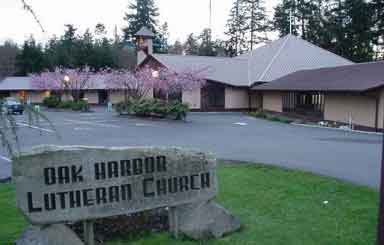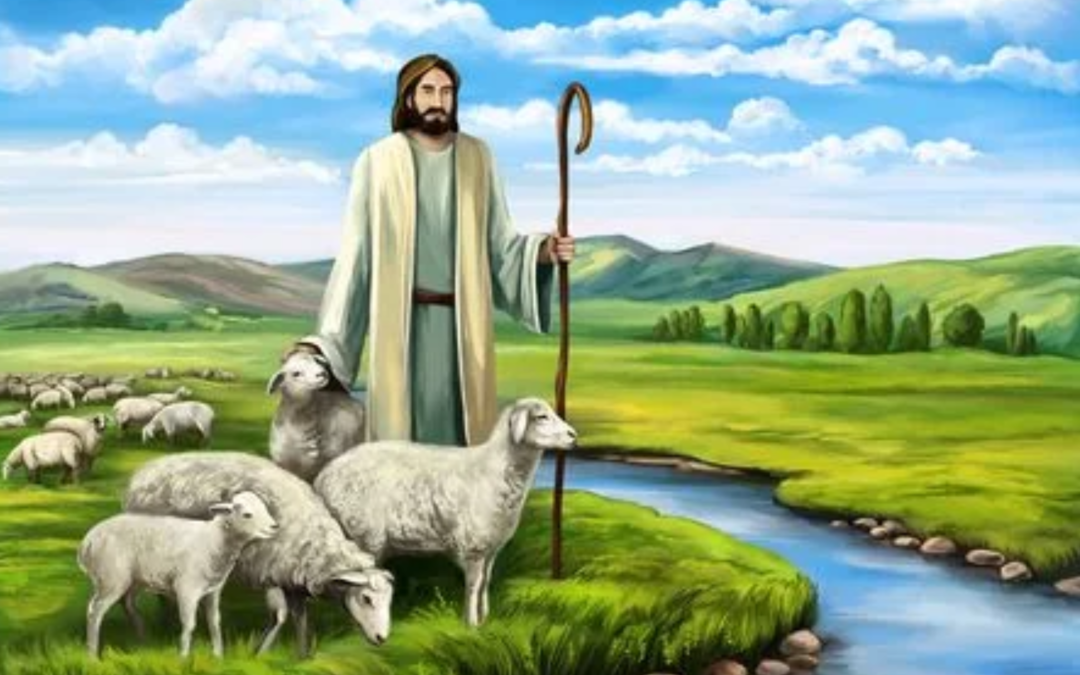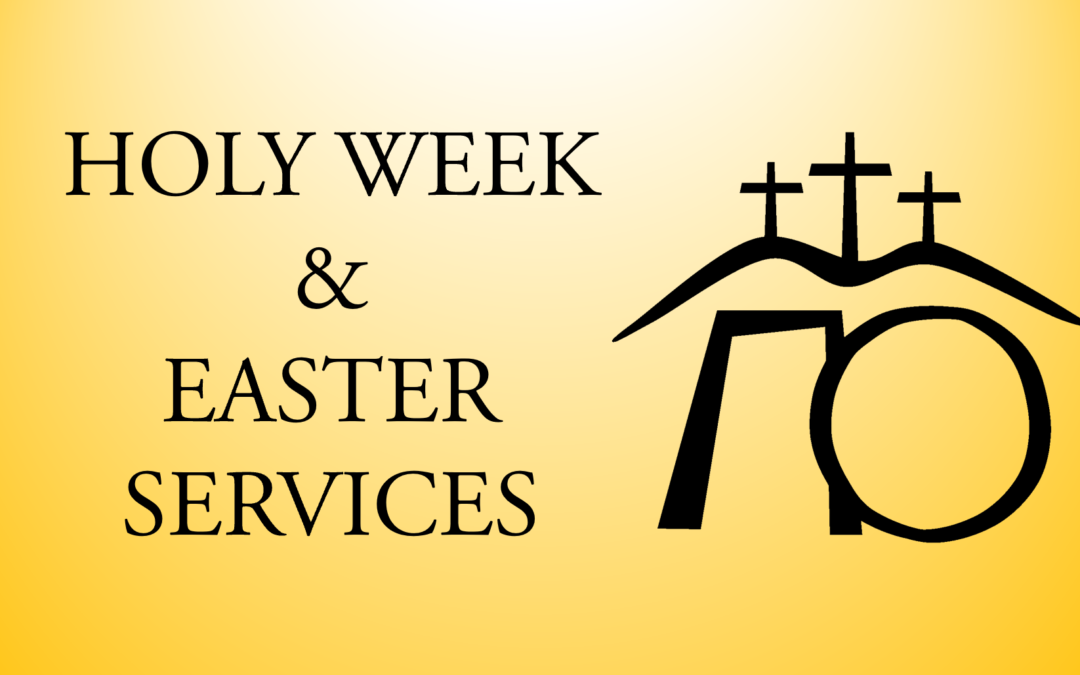
April 30: New Member Class
An orientation class for new members will be held on Sunday, April 30 at Noon. Lunch will be provided. Please RSVP via the Connection Card or by emailing Pastor Spencer at [email protected].

An orientation class for new members will be held on Sunday, April 30 at Noon. Lunch will be provided. Please RSVP via the Connection Card or by emailing Pastor Spencer at [email protected].

Join us from 6pm-7:30pm for a night of sheepish shenanigans and a snack as we celebrate Good Shepherd Sunday! All ages welcome.
CLICK HERE for a worship video for April 2
Sermon for Palm Sunday/the Sunday of the Passion – April 2, 2023
Matthew 27:11-54
Dear friends, grace to you and peace from God our Father and our Lord Jesus Christ.
The centurion had seen many crucifixions before. It was a common Roman practice, so he had probably witnessed hundreds of them before this one. His Grandpa may have told him stories of the slave revolt a generation before that led to 6,000 men being crucified along the Appian Way. It was part of Roman lore.
Crucifixions weren’t at all uncommon among the Romans. As a centurion he’d seen plenty of them.
But this one was different. It was different from the very beginning.
Usually when someone is charged with a capital offence, they have a lot to say in their own defense. They will say anything to beat the charges, and if that doesn’t get them anywhere, they will plead for their lives.
But this Jesus remained silent before his accusers.
Usually when someone is mocked and spit upon and beaten, they react in one way or another. They might return the insults. They might try to fight back. They might squirm and try to escape. No matter how hopeless the situation might be, it’s just human nature. That fight or flight reaction is so strong. If nothing else, they will plead for mercy.
But this Jesus bore it all without any hint of protest. He almost seemed to be doing it all willingly.
Yes, this one was different from the very beginning.
And then, as this Jesus was dying, weird things started happening – calamities that were cosmic in scale.
The sky grew dark. It started at Noon, and by the time it was 3 o’clock it was as dark as night. That’s when he cried out with a loud voice. That’s when he breathed his last. That’s when he died. It was as though the sky itself was grieving what was happening. It felt that ominous. It was like the sun was setting on an entire era of human history. It felt that significant.
Then there was an earthquake! You take it for granted that the ground is reliably stable, and so it is terrifying to feel it shaking beneath your feet, rolling and heaving, throwing you off balance. The earthquake was strong enough that enormous rocks were split, cracked open like eggs when they’re dropped on the floor. It was as though the very foundations of existence were being shaken.
This was no ordinary crucifixion. This one was different, thought the centurion. And as he stood there keeping watch, terrified by what he was witnessing, with a trembling voice he looked at Jesus on the cross and said, “Truly this man was God’s Son.”
Of course, this was no ordinary crucifixion. Of course, this was God’s Son.
Jesus took his sentence without argument – “like a sheep who before his shearers is silent,” as Isaiah had prophesied.
Jesus took all that abuse without protest – the insults, the spit, the fists pounding his face and the scourges striping his back. All of this, along with the crown of thorns pressed painfully into his forehead and the nails driven through his hands and feet, were taken willingly.
As Saint Paul says in our epistle reading, Jesus, although he was God, emptied himself. He submitted himself to death, even death on a cross. He emptied himself on purpose, with intentionality, willingly taking our sin upon himself.
And when the sky drew dark, the sun was indeed setting on an entire era in human history. Sin was being defeated, conquered, destroyed, atoned for. It would no longer separate a fallen humanity from a holy God. Through this crucified Messiah, humanity was being redeemed. And now, all those who place their trust in him have forgiveness, life, and salvation.
When the earth heaved and rolled, the foundations of our existence were indeed being shaken. Through this crucified Messiah, death itself was dying. And now, all those who believe in him, even though they die, will live.
This was no ordinary crucifixion. Jesus did it for you. He suffered for you. He died for you.
He did it to save you. He did it to redeem you. He did it in order to defeat sin, death, and the devil. He did is so that there would be nothing left that could possibly separate you from God.
This was no ordinary crucifixion. Truly this man was God’s Son.
And as we will learn next Sunday, he still is.
Thanks be to God. Amen.
Rev. Jeffrey R. Spencer
Oak Harbor Lutheran Church
CLICK HERE for a worship video for March 26
Sermon for the Fifth Sunday in Lent – March 26, 2023
John 11:1-45
Dear friends, grace to you and peace from God our Father and our Lord Jesus Christ.
Death stinks. It literally stinks, of course, but it stinks in every other way as well.
It stinks because it brings confusion and pain. It stinks because it brings grief, which can be overwhelming, even debilitating, at times. It stinks because it means loss. Death brings an aching absence in your life that used to be filled by the person who died. If it was someone especially close to you, this absence can be as profound as losing a limb. Yes, death stinks in more ways than one.
Death stinks because it can also make us confused about what God is up to in our lives. It can make us wonder whether God hears our prayers, whether God cares about us.
You can almost picture Martha and Mary giving Jesus the stink eye when he showed up a day late and a dollar short after their beloved brother died. “If you had been here, Lord, our brother would not have died,” they each said to him. When these sisters sent word to Jesus that their brother Lazarus was gravely ill, Jesus didn’t rush to their side. He didn’t immediately respond to their request. John tells us, “Though Jesus loved Martha and Mary and Lazarus, he stayed two days longer in the place where he was.” It is almost as though John feels a need to reassure us that Jesus loved them, because his dallying, his delayed response, sure didn’t look like love. By the time Jesus headed out to Bethany, Lazarus was already dead. And so came the stink eye directed towards him from Martha and Mary. Then came the thinly veiled disappointment in him as they said, “Lord, if you had been here, our brother would not have died.”
I sometimes hear echoes of Mary and Martha’s words in the grief and the disappointment and the confusion and the anger of those who have lost loved ones, those whose prayers seem to have gone unanswered. We pray fervently for God to intervene when we are sick or when someone we love is sick. We pray fervently that God would come and help. We pray fervently for healing, for the surgery to be successful, for the tumor to be benign, for the chemo to work. By all means we should pray for these things, and when our requests are met, we should give thanks.
When they aren’t, however, that’s when the stink eye often shows up. That’s when the disappointment can set in. That’s when one’s relationship with God sometimes becomes strained.
When Jesus was confronted by these two grieving sisters, he didn’t give them an excuse for why he didn’t respond right away, in the way they would have liked. Instead, he gave them a promise. “I am the resurrection and the life,” Jesus said. “Those who believe in me, even though they die, will live, and everyone who lives and believes in me will never die.”
Jesus didn’t give these two disappointed sisters an explanation for why he allowed things to unfold as they did. Instead, he wept with them. Even though he knew what would ultimately happen, Jesus had empathy for them. He understood what death did to people. He was moved by their grief and shared in it. His emotions flowed so freely that some in the crowd noticed it, saying, “See how he loved him!”
Others were cynical about it, saying, “If he loved him, why didn’t he come a little earlier and save him?” But Jesus did love Lazarus. He loved Lazarus so much that he asked to be taken to the tomb. They brought him to the tomb, which was a cave with a stone lying against it to seal it tight. Jesus said, “Take away the stone.” But Martha said no. She said no because death literally stinks. “Lord, already there is a stench because he has been dead four days.” Tombs weren’t something you just opened up again. They were filthy places. They made you unclean, both physically and, in Jewish tradition, spiritually as well. But Jesus loved Lazarus enough to get dirty.
I once knew a man whose wife died. He had adored this woman. He was the kind of husband who doted on his wife, holding her hand whenever he could with a big smile on his face. He just lit up whenever she was around. He cared for her so lovingly in her final days. Then he found himself standing at her graveside in his best suit. He insisted on staying until she had been lowered into the ground. People milled around for a while, but he lingered, and lingered, and lingered. He just didn’t want to leave her. Eventually it was just me and him and the funeral director left there when he got down on the ground next to her grave. He got down on his belly and reached his arms down to his wife, calling out her name. It didn’t matter to him that he was getting mud all over his nice suit. He loved her and he didn’t want to let her go. It was gut-wrenching and beautiful at the same time.
Jesus loved Lazarus enough to get dirty too.
“Did I not tell you that if you believed, you would see the glory of God?” Jesus said. So they opened up the tomb. Jesus came right up next to it. Jesus spoke into that dark cave as the stench wafted out. Jesus called out his name: “Lazarus, come out!”
And Lazarus came out.
If there was any question about whether Jesus loved him before, there wasn’t now. If there was confusion about what Jesus was up to, it had now given way to the joy and wonder of Jesus’ power over death. If there were any doubts about Jesus before, they now gave way to faith in him. As John tells us, “Many of the Jews, therefore, who had come with Mary and seen what Jesus did, believed in him.”
While Jesus didn’t respond to the sisters in the way they wanted him to, while he didn’t grant their request and come quickly to heal Lazarus, Jesus did do what gave God glory. He said no in order to say yes to something better. He let Lazarus die so that he could show his power over death. And many came to believe in him as a result.
The Christian church has always seen human life as precious, from womb to tomb. The Christian church has always sought to preserve human life. Christians literally invented the hospital so that sick people would be nursed back to health and diseases might be treated and people could go on living as long as possible. We can and should pray fervently for anyone who is ill, asking God to intervene and heal them.
But no matter how much we pray, and no matter how wonderfully advanced medical technology gets, death will come. It will come for the people we love. It will come for each of us.
That stinks, but Christ Jesus does not leave us alone when death comes. Though we might wonder where he is, though we might be disappointed that our prayers aren’t answered in the way we would like, Jesus does come to us. He comes to us in the same way he came to Mary and Martha.
Jesus comes to us with a promise. He says, “I am the resurrection and the life. Those who believe in me, even though they die, will live, and everyone who lives and believes in me will never die.” Jesus acknowledges the reality of death, saying, “even though they die,” but he promises that death will not hold us. It will not have the last word for us who trust in him.
As we encounter death, Jesus has compassion for us. He has empathy for us. He weeps with us. He knows the toll death takes on our hearts and our lives. He knows the aching absence. He loves us so much that he weeps for us and with us. And so we are never alone in our grief. Even when it feels like it, even when our heads are swimming with a swirl of intense emotions and we can’t make sense of anything, Christ Jesus is right there beside us, accompanying us in our grief, walking through it with us. We grieve, but, as St. Paul says, “we do not grieve as those who have no hope.” We have a promise from our Lord that gives us hope in the face of death.
When we are one day lowered into our grave, or scattered, or interred, Jesus will do what gives God the greatest glory. He will come to our tomb. He will open it up. He will get down into the dirt and stink of it all to be close to us, refusing to let us go. In his great love for us he will reach his arms down into our graves and call out our names.
And his voice has a power that ours do not. His word is more powerful than death.
And so when we die, the first thing we will hear is the voice of our Lord Jesus calling our name, calling us to come out.
It is then that we will be unbound from death. It is then that we will be truly healed. It is then that we will bask in the fullness of the glory of God. It is then that we will rise up to live with Jesus and all the saints forever.
Thanks be to God. Amen.
Rev. Jeffrey R. Spencer
Oak Harbor Lutheran Church

All are welcome to join us for Holy Week and Easter at OHLC. Our Maundy Thursday service will be held on April 6 at 7pm. Good Friday services will be held on April 7 at Noon & 7pm. Easter Sunday worship services are at 8am and 10:30am. We will also have a festive Easter breakfast from 9am-10:15am, and an Easter egg hunt for the kids at 9am. Come commemorate our Lord’s last week, and celebrate the resurrection!